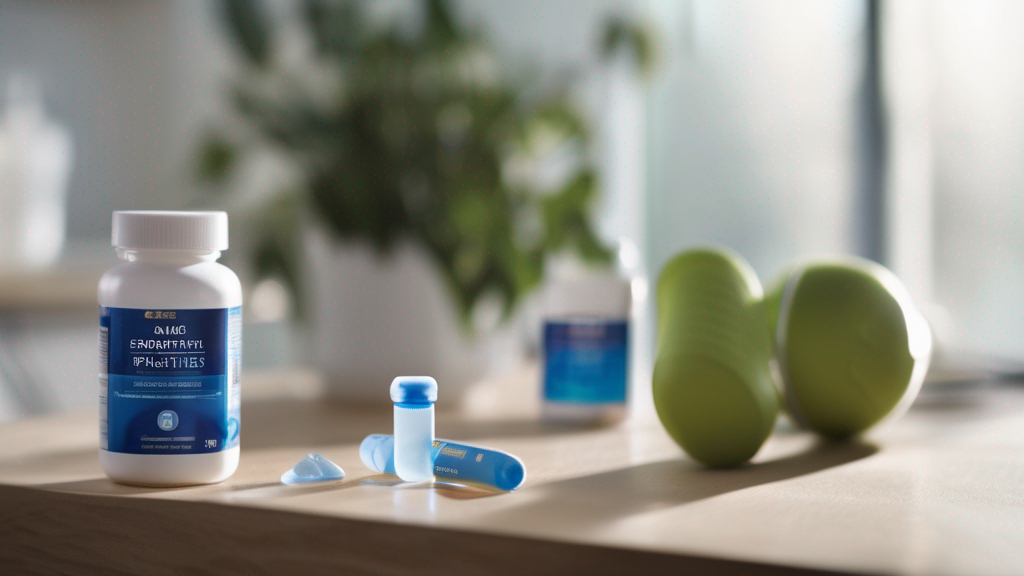It was 3 AM when my calf suddenly locked up—sharp pain that shot through my leg and woke me right out of a deep sleep. I fumbled for my phone flashlight, hopped out of bed, and found a tube of topical gel on the nightstand. A few minutes after rubbing it in, the cramp eased and I could finally curl up again. If you’ve ever been caught off-guard by a muscle cramp, you know how relief can’t come fast enough. Here’s a simple guide to the best over-the-counter fixes that work quickly and safely.
Why Muscle Cramps Happen
Muscle cramps are sudden, involuntary squeezes of one or more muscles. Common triggers include:
- Dehydration or low electrolytes
- Overuse or heavy exercise
- Poor circulation or sitting too long
- Holding a position for too long
- Certain medications or low mineral levels
Most cramps are harmless but can be painful. The right OTC solution can ease pain and help you recover faster.
Top 6 OTC Solutions
Below are the most effective over-the-counter options, how they help, and how quickly you’ll feel better.
| Solution | Main Benefit | Relief Time |
|---|---|---|
| Magnesium Supplements | Supports muscle relaxation | 1–2 hours |
| Electrolyte Tablets/Powders | Replaces sodium, potassium, magnesium | 30–60 minutes |
| Ibuprofen or Naproxen | Reduces pain and inflammation | 20–30 minutes |
| Topical Analgesic Gels | Numbs and soothes locally | 5–10 minutes |
| Heat Packs | Improves blood flow, relaxes muscle | 10–15 minutes |
| Electrolyte-Rich Drinks | Hydrates and restores balance | 1–2 hours |
1. Magnesium Supplements
Magnesium plays a key role in muscle contractions and relaxation. A 200–400 mg dose taken after dinner can ease nighttime leg cramps. Start with a low dose to check tolerance.
2. Electrolyte Tablets or Powders
Muscle cramps often stem from low sodium or potassium. Mix a tablet or scoop in a glass of water and sip throughout the day—or right after a workout—to replace lost minerals.
3. Ibuprofen or Naproxen
These anti-inflammatories block pain signals and reduce swelling in overworked muscles. Take with food and follow package directions to avoid stomach upset.
4. Topical Analgesic Gels
Gels or patches with menthol or capsaicin cool and warm the skin, distracting your nerves from the cramp. Rub on the tight muscle and gently massage until the ache softens.
5. Heat Packs
Applying a warm pack increases blood flow and relaxes muscle fibers. Use a microwavable heat pack or warm towel for 10–15 minutes at the first sign of cramp.
6. Electrolyte-Rich Drinks
Sports drinks or special rehydration solutions deliver fluid plus sodium, potassium, and magnesium. Sip slowly over 30–60 minutes to give your muscles what they need.
Quick Stats on Muscle Cramps
| Statistic | Value |
|---|---|
| Adults experiencing leg cramps monthly | 60 % |
| Athletes with exercise-associated cramps | 30–50 % |
| Nighttime leg cramps among elderly | 33 % |
| Reduction in cramps with magnesium use | 30–40 % |
Real-Life Cramps — Case Studies
Case 1: Morning Runner
Jake, training for a 10K, often got foot cramps mid-run. He started adding electrolyte powder to his water. Within a week, his cramps dropped from twice-weekly to almost never.
Case 2: Desk Worker
Anna felt calf cramps after sitting all day. She kept a heat pack in her bag and used it during breaks. The warmth quickly stopped the cramps and prevented them from returning.
Case 3: Weekend Gardener
Bill’s hand muscles cramped while pruning. He applied a menthol gel and stretched gently. The pain eased in minutes, letting him finish his gardening without a trip to urgent care.
Additional Tips & Prevention
- Stay Hydrated: Drink water regularly, even if you’re not thirsty.
- Stretch Daily: Focus on calf, hamstring, and quadriceps stretches.
- Foam Rolling: Roll tight muscles for 1–2 minutes to keep them pliable.
- Balanced Diet: Include bananas, leafy greens, nuts, and yogurt for natural electrolytes.
- Avoid Excess Caffeine & Alcohol: They can increase fluid loss.
When to See a Doctor
Most cramps respond to OTC care. Seek medical help if you notice:
- Severe, persistent pain lasting more than 48 hours
- Muscle weakness or inability to move the limb
- Swelling, redness, or warmth suggesting blood clots
- Cramps accompanied by chest pain or breathlessness
FAQs
Q: Can stretching alone prevent cramps?
A: Regular stretching helps, but pairing it with hydration and minerals gives the best results.
Q: Are coconut water and sports drinks equally effective?
A: Coconut water is natural and rich in potassium, but sports drinks often have more sodium—both work well in combination.
Q: How quickly should cramps subside with OTC gels?
A: Many people feel relief in 5–10 minutes. If not, move on to oral solutions or heat.
Q: Is it okay to take magnesium every day?
A: Yes, at recommended doses. Too much can cause loose stools, so start low and adjust.
Conclusion
Muscle cramps can stop you in your tracks, but with the right over-the-counter tools—magnesium, electrolytes, NSAIDs, topical gels, heat—you can find fast relief and get back to your day. Combine these treatments with good hydration, balanced nutrition, and simple stretches to keep cramps at bay. Keep this guide handy, and next time a cramp strikes, you’ll know exactly what to reach for.
